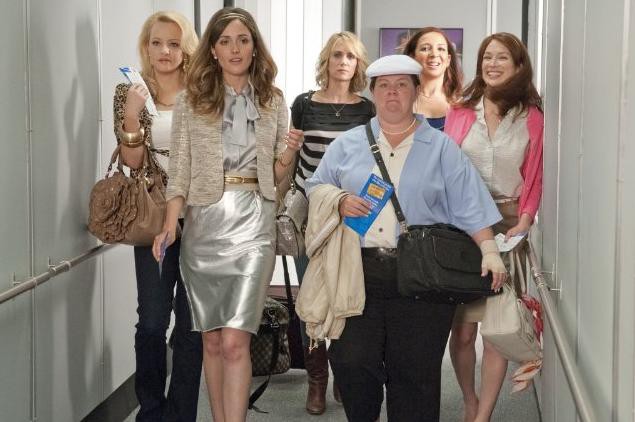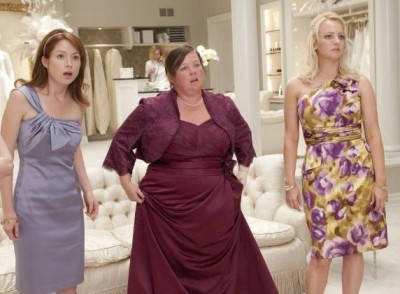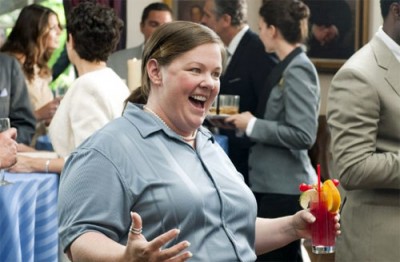How To Read Stories About Alcohol Being Good For You
Emphasis mine: “People like Fillmore worry that even when studies are accurate, including ‘alcohol’ and ‘lowered risk’ in the same sentence sends the wrong message. The notion that something fun and relaxing can also be healthy is extremely enticing, and may overshadow alcohol’s drawbacks. ‘Extremely heavy drinking is related to a lot of negative outcomes including liver damage, accidents and injury, cardiovascular disease, and so on,’ says Fillmore.”
With the Ladies in the Back at an Odd Future Show
by Emma Carmichael

Late on Friday night, I joined a lot of other white people at the Highline Ballroom to see Odd Future. At the door, a girl in a Juicy sweatshirt handed out paper masks of Tyler, The Creator’s face. The image was borrowed from his self-designed Goblin album cover. There were eyeholes punched out, so that you couldn’t see the milky black irises he’d Photoshopped onto his own face, and so that every person there could resemble Tyler while they chanted “swag,” “goblin,” and “Free Earl,” who needs no freeing, at the 20-year-old with a microphone and a record deal who claims not to care for his own music.
About an hour after the doors had opened the crowd started to push to the front, and a cheer went up as Syd Tha Kyd, Odd Future’s openly gay female DJ, came to the stage. She wore an oversized white T and no jewelry, and she took to her tables without a word. The young men surrounding me — most of whom, I’d estimate, were still in high school or in their early undergraduate years — stared at her in a kind of rapture. Some danced, and everyone chanted things, like the words to Soulja Boy’s “Pretty Boy Swag,” which was done with a careful balance of irony and earnestness. After two mixes, and a brief run offstage, Syd picked up a mic and announced that she’d been told “they were disappointed back there because y’all are acting like bitches.”
I went to the women’s room and, being, I guess, one of the few actual bitches in the audience, found no line.
From my stall, I could hear a loud cheer go up. “Oh shit, we’re missing Tyler?” a girl yelped.
“All you’re missing,” I said, “is white boys jumping on each other.”
“Yeah, sister!” she shouted back, laughing. “About the white people.”
I came out to wash my hands and acknowledged her. We were both white women.
Back in the hall, I made my way again to the front half of the crowd and stood about ten deep at left center stage. Syd was actually just wrapping up her set, and everyone seemed charged, or just drunker, in anticipation of the 20-year-old who had named himself The Creator to arrive to the stage. He emerged minutes later in a blue-and-white baseball shirt and a hat. Syd dropped the beat — all Neptune scarcity, bass-line heavy — and the young men raged. They jumped and pushed and yelled and looked like they had never cared about a thing so much in their lives. It was, for the first 10 minutes or so, simply live and energetic and maybe even a little bit rapturous.
Odd Future, and especially Tyler, have an energy to their live shows that I haven’t seen for years — probably my fault, because for years, I’ve been going to see aging hip-hop stars of the 90s perform as I attempt to play catch-up to a culture that moves too rapidly and changes too drastically for catch-up. It’s as pointless a pursuit as the contrived nostalgia that defines hip-hop fandom: we, even those who maybe don’t belong in the first place and who weren’t around in the first place, are forever reminiscing about some lost era to the music, when supposedly every rapper had some kind of a social agenda and when women had a real part in it.
But I wasn’t there, and I don’t know whether or not it’s true — or if it’s just the kind of self-produced delirium that makes it easier to hate on whatever we have on rotation now. But I know that I’m drawn to Odd Future because they’ve done something that feels seismic in its influence, in a way that I think hip hop must have felt Back When. And they’ve done it without bending towards the simple rhyme schemes and easy misogyny of the mainstream rap I try to ignore until I get the chance to dance to it in a dim room. (“Party staff baffled, askin’ where her ass go/In my room, redefinin’ the meanin’ of black holes,” as Earl raps in “Earl Sweatshirt,” carries a different weight for me than, say, “Gurl, shake dat Laffy Taffy.”)
I’ve come to know Odd Future’s music in the same way I did the summer before seventh grade, when my oblivious mother bought me the unedited Marshall Mathers LP for my birthday: alone, on my headphones, letting the wordplay and the rhymes meld into some edible melody that I can convince myself is singularly impressive. Since then I’ve done my best to subconsciously distance myself from the word “bitch” in the albums I buy and listen to. I’m able to convince myself that it is not about me. It helps that both Eminem and Odd Future have tried so hard to convince us that what they’re saying is not about anything at all.
But I never went to see Eminem perform “Kill You” live, and I wonder if I’d have responded in the same way I did at the Highline Ballroom on Friday night: two songs in, whatever initial high I had died and I slowly retreated to the back of the room. I felt overwhelmed, and I needed a break. In the back, the area Tyler had earlier fingered as the place where all the bloggers (or the “hipster-ass faggot-ass niggas”) were standing, there were actually women. We watched from a distance as a fan grabbed Tyler’s T-shirt so hard he ripped it, and as the young (mostly white) men raged to the young black men rapping about bitches and fags, and I wondered if I had gotten old and cranky and oversensitive without realizing it and if I just didn’t get it. Or was this some personal dressing-down for all the years I’d listened without really acknowledging or feeling the words I’d been listening to?
I learned that being back here, with most of the other women, made me, already a bitch, more of a faggot-ass, because I was a new Odd Future listener standing in the back of the room and not a committed Odd Future listener pushing other committed Odd Future listeners in the front. Tyler explained this as he grabbed a Converse sneaker that had been tossed onstage and rocketed it into the upper balcony, and then he went into “Yonkers,” the phenomenal single from Goblin. The beat dropped and looped before Tyler, now shirtless and pulsing with energy even as his voice got hoarse, went in; the crowd started “Free Earl” and “Gob-lin” chants before Tyler told them to “shut the fuck up,” which they immediately did. They sounded, for a moment, let down by the man on their masks.

But if they were, they’d forgotten by the second “Yonkers” verse, when Tyler bounded into the crowd and everyone surged towards him, camera phones aloft. He returned to the stage as Syd killed the track, and announced that near the bar, he’d “bumped into a bitch and she got mad.”
“Bitch is a stripper!” he yelled, and lots of people cheered and laughed at the prospect of the bitch being a stripper. “Why come to an Odd Future show if you gon’ get mad?” he asked. “Pussy musta got like five licks. Bitch is a fuckin’ stripper, yo. You can go home if you don’t like it.”
Syd’s presence and control is one of many things that are remarkable and defiant about an Odd Future show. I watched her as the crowd joined the Odd Future crew in chanting “bitch, kill yourself.” She was calm, as she’d been throughout the show, with a slight smirk on her face, like she had the punchline to some private joke on loop, and that smirk often spread into a gleeful smile. She kept the look when, just after two in the morning, a blonde girl surfed her way onstage and kissed Tyler, who announced, “I might legit have herpes.” The crowd laughed and started a “show your titties” chant, and she refused, looking bashful. “Then get the fuck off the stage!” Tyler yelled, and she jumped into the outstretched hands, just as easily forgotten as the things he’d said.
It was then that Odd Future brought out Frank Ocean, the singer-producer who’s newest to the group and responsible for the great Nostalgia Ultra, and he sang “Novacane” as girls climbed onstage. Ocean regarded them a little, but not much at all, and they all did their best Shakira impersonation until a stage manager bounded out to drag three backstage and push the other three back into the crowd. “Real quick,” said Tyler, as he emerged from behind Syd’s table and Ocean left the stage, “that was the most awkward shit I’ve ever seen.”
This is the paradox of the Odd Future narrative, and of the people who so eagerly consume it. That includes me. The young men rap about bitches, and about fucking them and raping them and rubbing glass on their clitorises, but the “bitches” aren’t in their videos. They’re not onstage in any intentional way, as in an orchestrated moment at a Drake show. Unless their name is Syd and they’re in charge of every song and of the show’s momentum, the bitch in the verse exists in some theoretical plane where anything can be done to her, or it, and no one has to be hurt.
The words don’t match up with the spectacle.
Odd Future has been saying, for some time, that they’re doing something that no one else has ever done before. That’s a statement that you can’t really qualify, but I think there’s at least some truth to it, if only in part because the people we’re listening to are mostly teenage boys. The wordplay is intended to be an edible melody, with a sidelong glance that says I don’t really mean this and we both know it, and holy shit, isn’t it fun, anyway?, and nothing else at all.
Their trick is deciding who gets to be in on the joke; for listeners sensitive to lyrics about rape or homophobia, the trick is deciding if you really want to be in on the joke in the first place. Young white men, Tyler masks strapped on, were clamoring for that right on Friday, while the women tried to find a place for themselves. That meant either dancing awkwardly onstage, because that’s what seems true to the form, or retreating to the back, amongst the stripper-bitch-faggot-asses, and watching passively from a distance.
I guess I went back there because it felt more like I was alone and on my headphones again. Most didn’t need that space. At 2:30 a.m., as Odd Future ended its encore, the boys in the front rows of the crowd surged onto the stage to dance until the lights came on. They knew all the words, which I guess made them anything but faggot-asses, but I don’t know that it made them in on the joke.
Previously: The Miscontextualization of Nicki Minaj
Emma Carmichael works at Deadspin.
Supreme Court: Suck It, Fourth Amendment!

Back in January, we wrote about Kentucky v. King, when, during the arguments, we got to have Justice Scalia tell us that one important tool of policing was that criminals were stupid. Well, the joke’s on us! Eight to one, the Supreme Court agrees (decision here [PDF]) that if the police “hear something” that sounds like evidence being destroyed, because they come a-knocking, they can break down your door. This is one of those special days when liberals and libertarians come together in horror! Hold us closer, Justice Ginsburg, lone dissenter!
The Death Of Instant Messenger

I still use AIM. That’s right. I am an AIM user. This apparently makes me old. The kids today, with their Facebooks and Gchats and beeboos or whatever it’s called, they laugh at me when I tell them I use AIM. Oh, you should hear the mockery and disrespect, the snickering. It burns, the way they do an imitation of me using a walker. Some of them have even asked me what AIM is. Anyway, I have been content, in my stubborn, fogeyish way, to remain on AIM even as my group of contacts moves on to the newer, flashier thing. It is a kind of digital natural selection, I guess. So learning that “AIM is effectively dead” isn’t exactly shocking, but there is something a bit disheartening about the finality of it all. What will I do now? Anyway, excuse me, I need to go wind my watch.
'Bridesmaids': Am I Doing Being A Woman Wrong?
by Michelle Dean

Everywhere I went last week, women were talking about Bridesmaids. When they would see it, how many and varied were the ways in which they adored Maya Rudolph, how Kristen Wiig really was amazing in those two minutes of Knocked Up she appeared in, etc. Perhaps that only says something about the circles I travel in, although now we know that people spent about $25 million this weekend to see it. But much as talk of weddings, and all the things one Must Do and Must Have at one, often makes me feel as thought I was born in a pod sent here from the planet I Don’t Know How To Be A Lady, so too did all the hoopla about this movie. I know there’s a burgeoning cultural sub-discussion about the place of women in comedy and in Hollywood — I’ve run up against it before. But it was unclear to me how, exactly, we all had such faith in a movie whose poster contained the words “Produced by Judd Apatow” (shudder) and which used the phrase “Chick Flicks Don’t Have to Suck” as a cornerstone of its marketing.
I hoped, of course, that this was only me being my usual contrarian self, and that my feelings of alienation from the sisterhood would disappear upon seeing the film itself. But they didn’t.
Bridesmaids is, as undoubtedly many of you know for yourselves by now, not the worst way you could have spent two hours of your weekend. It’s quite funny, in fact, and not always in the manner the trailer might have led you to expect. Specifically, for all those who feared it would be full of jokes of the “food-poisoning-induced diarrhea” variety, that’s not the case. There’s plenty of Wiigian deadpan on offer, with that uniquely skittish flatness she delivers so beautifully. Her impersonation of a penis in search of fellatio is amazing, and I particularly enjoyed some drunken escapades on a plane that, despite being cast at a fairly broad level of comedy, Wiig manages to make subtle with her habit of underplaying the joke. Almost in a Peter Sarsgaard-esque way, if I may be granted a potentially bizarre analogy. Maya Rudolph, as the bride Lillian, looks fantastic basically the entire movie, even if she hasn’t much to do. There’s a bonus Jon Hamm appearance during which he questionably tries to channel his charming surfer-dude personal demeanor through the Draperian asshole type. But who cares about the success of that, Jon Hamm is hot.
But that’s about all the good things I can say about it. And as I checked over my notes afterwards, I noticed that none of the things I enjoyed about the movie were really related to the movie’s appeals to “women.” Which is funny, of course, because in the last week there was a lot of meta-critical chatter that posited this movie as a kind of referendum on the modern Chick Flick Condition. I first became suspicious when men’s reviews of this film were filled with nice guy-isms that smacked of the modern fear, particular though not exclusive to male liberal arts graduates, of being seen as sexist. Roger Ebert: “It definitively proves that women are the equal of men in vulgarity, sexual frankness, lust, vulnerability, overdrinking and insecurity.” (Well, I guess we don’t need the ERA anymore!) From no less a women’s magazine wannabe than the Wall Street Journal: “If this is only a chick flick, then call me a chick.” (We’re always looking for fresh blood!)
It wasn’t only men who praised the movie to the heavens. At Salon, Rebecca Traister went so far as to term attendance a “social responsibility,” while Mary Elizabeth Williams called the film “your first black president of female driven comedies.” (Eek.) In other words, the sisterhood is calling, and your solidarity is required by way of your wallet. Imagine my surprise when I arrived on these hyperbolic recommendations — from writers I respect! — to discover a movie whose “female”-ness is derived almost exclusively from the sheer number of speaking roles assigned to women. Who talk almost exclusively to each other, bless them.
That said, even when applying the new gold standard of the Lady Film, the Bechdel test — it’s now been endorsed by the New Yorker, after all — the results are mixed. I’m not sure if we can really count conversations about weddings in this movie as not being “about men” — although it’s true that the province of the wedding is presented to us as women’s territory. But movies like Bridesmaids presume that much of the angst that women who are not the bride feel on these occasions has to do with not being married (or at least in a stable relationship) themselves. In the logic of this kind of film, no one has any problem with the idea that an expensive dress, lasers and Wilson Phillips, are the appropriate accessories to a celebration of the person with whom one plans to spend a life. Instead, the fear and anxiety in Bridesmaids springs almost solely from losing a member of your personal sisterhood to the land of men. I don’t mean to suggest that that isn’t a real fear, sometimes, nor even that it shouldn’t play a role in movies like this. It’s that you miss things, crucial things — funny things! — when you make it your exclusive lens.

Take, for example, the whole matter of dresses — bride’s and bridesmaids’ — a topic much debated and joked about among women of this film’s ostensible target demographic. These dresses are frequently ugly; they are expensive; and boy, would most women I know like to crucify the person who came up with the idea that the only way to look good in wedding pictures is for the bridesmaids’ dresses to match. Placed in that context, the scene in which the dresses are being chosen is an egregious missed opportunity. The movie doesn’t even go for the weakest of jabs at that whole ridiculous tradition. We’re expected to laugh instead at the spectacle of Maya Rudolph shitting in the street, a scene that was apparently the brainchild of Apatow himself.
The problem with that intervention isn’t just that it was made by a guy who, prior to this film, seemed afraid to admit that women might shit at all. (Such are the scraps you learn to accept from the big boys’ table, I suppose.) It’s that it also keeps the central relationship, and the tension the story seeks to introduce into it, from making much sense. After the plane escapade, when Wiig’s Annie gets the group grounded on their way to Vegas for a bachelorette weekend, Lillian tells her that she’s relieving her of wedding duties because it’s not her thing. In context this makes no sense. Annie has only, in terms of errors, picked a bad restaurant and accepted two alleged anxiety-reducing pills from Rose, her rival. I can see where the writing might have gone with this — it’s true, for example, that if someone asked me to be her Maid of Honor there would be moments when I would fear that my eyes would never quit rolling. I might balk at the idea of having to plan both a shower and a bachelorette party, for example. But Annie is never presented to us as That Sort of Girl. She has no objection to the proceedings that could be even vaguely categorized as feminist. Instead, hazily, it’s suggested that her problem with Lillian’s wedding is simply that everyone else’s life seems to be moving forward just as hers descends into disaster: she has no job and has had to move back in with her mother. And, mainly, she has no man. Jon Hamm is commitment phobic and bad in bed to boot, and Annie herself can’t commit to the cute (if bland) police officer she charms out of giving her a ticket. And so we’re back to the same old thing: any ambivalence Annie feels towards the wedding is just a cipher for her fear that she will never, herself, have a guy to call her own. (It’s worth noting that this romance is the only thread of Annie’s disheveled life that the film resolves.)
Do I blame Wiig, and her co-writer Annie Mumolo, for all of this? Not precisely. They were making a Hollywood comedy, they were doing so at the behest of, and supervised by, Judd Apatow, and expecting “subtlety” and “depth” to emerge from such a process might be too much to ask for. It’s telling, after all, that women’s “votes” for this film were characterized as dollars, which in this bafflingly Gilded Age of the market economy apparently is the new measure of quality. Of course, I do understand that films need to make money, and I also understand that there are agreed-upon (if arbitrary) methods for doing so that are largely beyond creative control. I further understand that this is a team effort, and that the team undoubtedly includes studio suits who, in Tina Fey’s soon-to-be immortal formulation, believe that “the definition of ‘crazy’ in show business is a woman who keeps talking even after no one wants to fuck her anymore.” I blame the frame more than I blame any of the individual people holding it up. But then if the problem is really the Apatowian-industrial-complex, and its control over architecture of this whole film, well: maybe it’s time to come to terms with the fact that this kind of movie can’t be quasi-feminist, or perhaps more aptly, even a victory for women qua “women.”

And it’s not just a matter of the film making it All About the Men. Take the strange case of Melissa McCarthy’s character, Megan. Chatter on my various social media feeds suggests that in some people’s view she stole the movie. Manohla Dargis bizarrely called her character almost “radical.” But I was mostly appalled by how she’d been written, myself. Almost every joke was designed to rest on her presumed hideousness, and her ribald but unmistakably “butch” sexuality was grounded primarily in her body type and an aversion to makeup. (“I never bloat,” she says at a bridesmaids’ lunch, which is funny because she is big, Y/Y?) But if her failure to apologize for her size seems momentarily refreshing, one’s satisfaction is instantly deflated by the fact that all the other characters in the movie find her so distasteful. The dominant feeling she seems to elicit from her fellow bridesmaids is one of horror. Even when Megan has a heartfelt talk with Annie towards the end of the film, Wiig seemed to struggle to shed a nose wrinkle.
It’s not so much that the character was unrecognizable — I’ve known women like Megan. It’s that none of the humanity we see in her came from the script — it was all in McCarthy’s performance. Which is lovely as it provides a good showcase for McCarthy’s talent, but I wonder what she, in her heart of hearts, feels about being consigned to roles like this because of her body type. Sure, comedies often feature a buffoon character along these lines. In some sense she was playing the Jonah Hill/Zach Galifianakis role. What I object to is less that these roles exist than that they are assigned from the get-go to the kinds of women (fat, butch, maybe African-American if “sass” is required) that society feels extremely comfortable laughing at. Which is to say: why can’t the buffoon be skinny? Even pretty in a conventional way? Even more to the point, why must her looks be made the essence of her buffoonery?
The answer might have to do with studio/Apatowian tweaking, with their article of faith being that fat women are unattractive and unattractive women will not put butts in seats unless they are ridiculed. But running along here is a sort of ickier undercurrent of the whole concept of “sisterhood” — namely that it’s so often built on the backs of women of the “wrong sort” — in this case “too fat/unattractive.” The content of that wrongness varies from context to context, of course. But the “rising tide” theory of social advancement is only great until you’re the one being used as a stepping stone. And I’m not going to get into all the pages and pages of theory that feminist writers have wasted on this because no one cares, certainly not readers of some movie review, in any case. Nevertheless, here’s my qualm: I’m never going to feel comfortable with the term “feminist” or frankly even “female-driven” being applied to a comedy, albeit written by women, albeit starring excellent, funny women performers, albeit designed to appeal to the gross-out comedy crowd, that makes fun of fat women for being so plainly gross and disgusting.
Yes yes yes, I heard you, Judd Apatow, Paul Feig, every dissenting male commenter on an article about women and comedy, ever: nothing should be sacred in comedy. The problem is exactly that, though. Your view of what is and isn’t sacred is remarkably rigid. (Also, boring.) Pretty, thin ladies being amazing? Sacred. Fat women being ugly? Sacred. Women who you don’t want to sleep with being anything other than objects of ridicule? Well, that’s going too far! You are all, the lot of you, positively catholic about such things. I’m sure you believe yourselves to be nice guys, “letting” the women have a movie like this one — but I, for one, don’t thank you for it.
Michelle Dean’s writing has appeared, among other places, at Bitch, The American Prospect and The Rumpus. She sometimes blogs here.
Credit all photos: Suzanne Hanover/Universal Studios.
Your Filthy Habits May Just Save Your Life
Good news! You never have to dust again: “The dead cells that slough off your skin every day pile up in the dust that collects around your home. But this grimy-sounding stuff actually helps clean the air indoors, according to new research. Oil associated with dead skin cells removes the pollutant ozone, a molecule made up of three oxygen atoms. In fact the oil, squalene, reduces indoor ozone levels by about 2 to 15 percent. Its molecules contain six double bonds between carbon atoms, and these bonds interact with — and break apart — ozone.” The article actually goes on to say that “this doesn’t mean you should stop dusting,” but I’m just going to ignore that because I think the Science there is flawed. Also, ewww.
I Used To Be Dumb, Now I'm An Expert
“The mystery of political conversion narratives is why claiming that you used to believe the wrong thing, because you were stupid, moves you to the front of the line to talk about the new, correct thing that you believe, now that you are smart.”
Jonathan Richman Is _60_
Today in news that seems almost impossible to believe, the great Jonathan Richman turns 60.
Consumers of PBS' Free Products Furious About Brief Ads
Entitled PBS web visitors are upset about sponsorship messages on online video. Oh no, someone is paying for you to freely consume things you want! How awful for youuuuu. These sponsored messages are totally scary, of course, because PBS consumers are apparently weak-minded prey and might start suddenly shopping at Goldman Sachs or Chevron. And yet you don’t hear them complaining about the constant sponsorship of PBS by the John D. and Catherine T. MacArthur Foundation, which is the gift of a profiteering insurance man, banker and aggressive real estate developer, whose grandson is rabidly anti-union.
